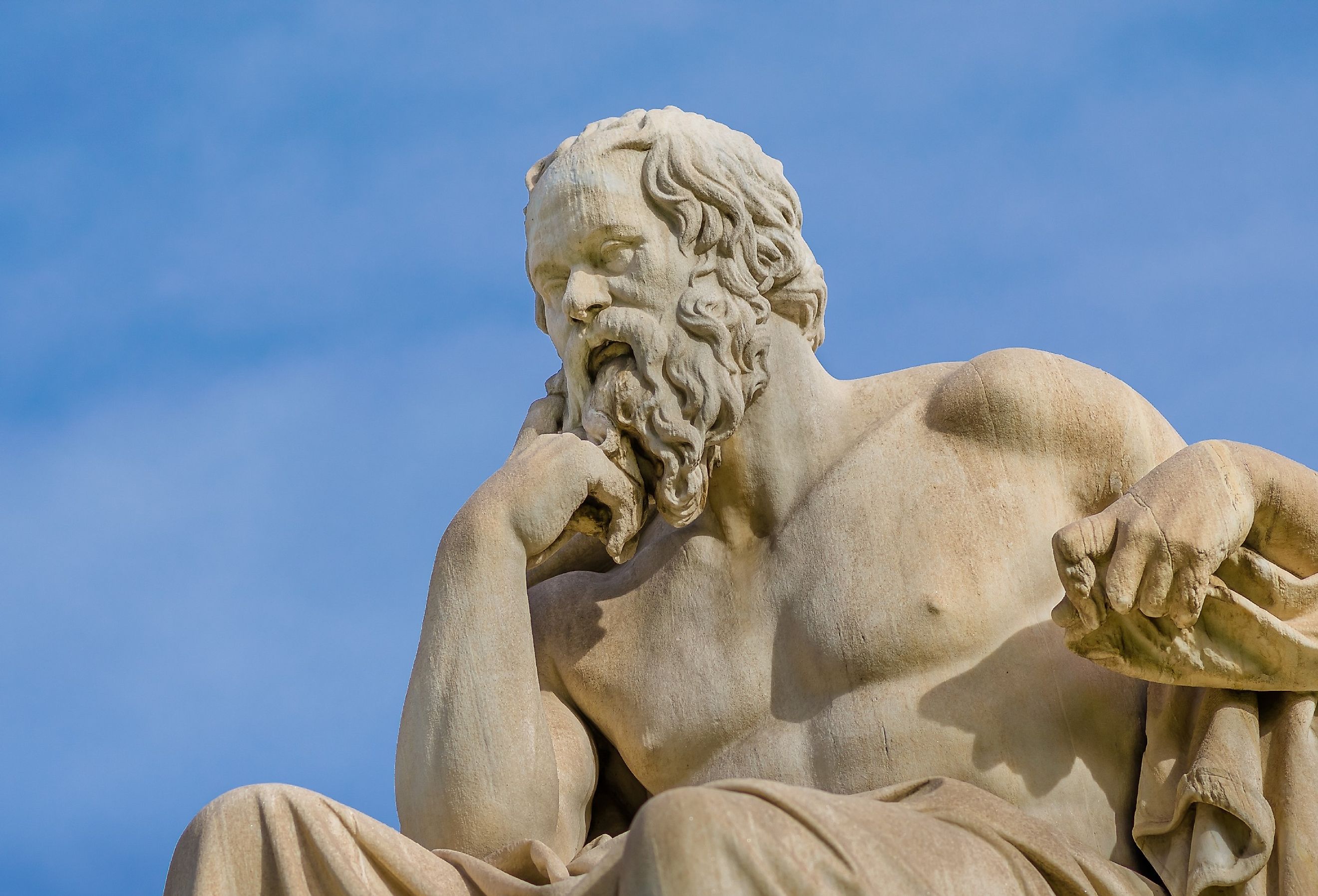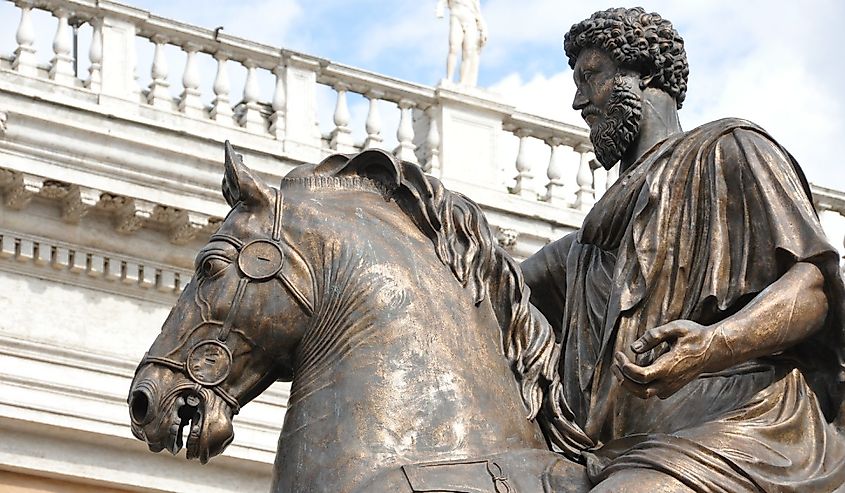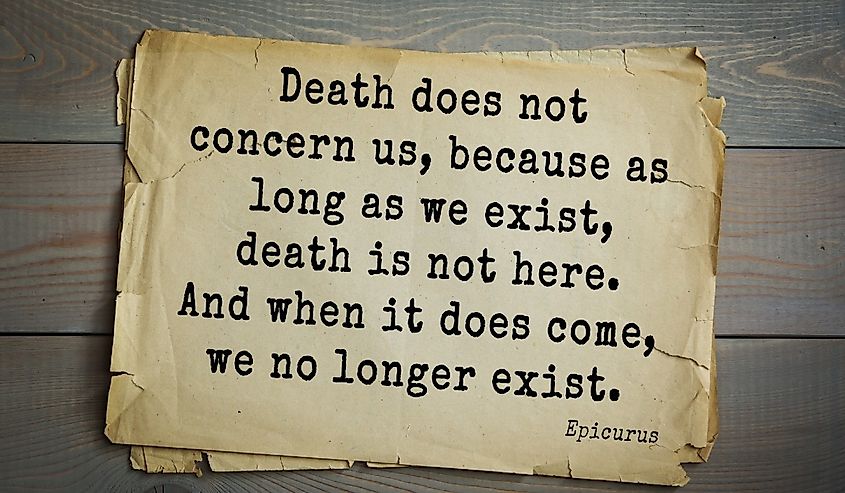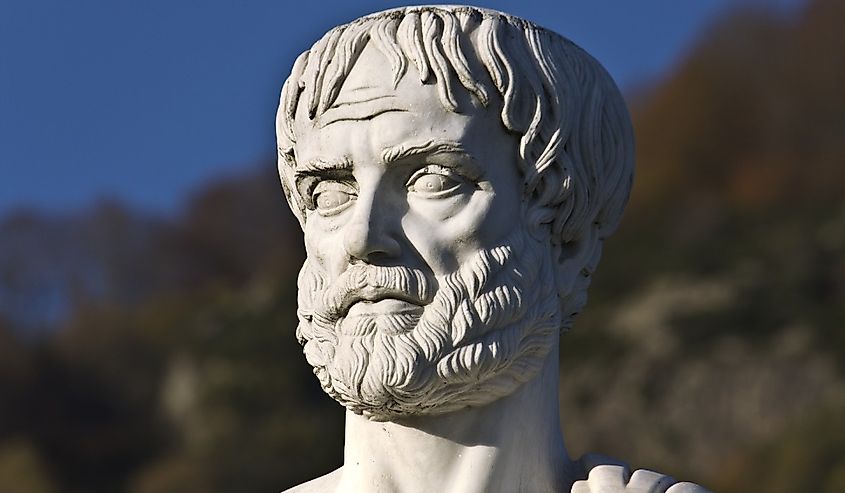
5 Philosophical Answers to the Meaning of Life
What is the meaning of life? This is a question many people ask themselves at some point in their lives. While some people turn to religion to answer the question, others have turned to philosophy. Throughout history, this question has occupied the minds of many philosophers, and different schools of philosophy have come up with various answers to the question. These five different philosophical answers and approaches to the question of the meaning of life showcase the vast diversity of human thought.
1. Existentialism - There is No Meaning

The question of the meaning of life is central to existentialism, a philosophy that explores human existence. Existentialist philosophy claims there is no inherent meaning to life. The universe is indifferent to our personal lives and goals. To existentialists, meaning is up to the individual to create. This relates to the existentialist idea that existence precedes essence. This is the idea that there is no predetermined essence defining what it means to be human. Actual life makes up an individual's essence. Meaning does not come before a human life comes into existence. Existence comes first, then meaning can follow. In this view, human beings can design their own life and therefore create their own meaning.
2. Stoicism - Achieving Logos

Stoicism is a philosophy focused around action and acceptance. According to the Stoics, the meaning of life is to live in accordance with reason and virtue to find fulfillment and peace. The Stoics believed in a concept called logos, a principle of rationality. They believed rationality governs the universe and that humans could achieve logos by acting on virtue. Certain virtues, such as courage, wisdom, temperance, and justice, make up the backbone for morality, according to the Stoics. The stoics believed people should live by acting in accordance with these virtues to achieve happiness, a concept they named eudaimonia. Part of acting on virtue means choosing to act on what is in our control. Acceptance was key in the stoic philosophy. To live a good life in the stoic view, includes accepting what is outside of our control and external to us.
3. Epicureanism - Seeking Pleasure

Epicureanism was an ancient Greek philosophy taught by Epicurus. In his teachings, Epicurus emphasized the goal of a content life in the present moment. He famously rejected the notion of an afterlife and did not believe in superstitious Gods. Epicurus believed there was no reason to fear death like many religions had taught and that people should not live their lives out of fear of future punishments. Epicurus was a man of science and had a materialistic view of the world. He did believe in a concept of the soul, but saw it as mortal, like the body.
According to Epicurus, it was human nature to seek pleasure and avoid pain. This concept of human nature was the premise of his philosophy. In the Epicurean view the goal of life is to seek pleasure. However, this view differs from hedonism. Rather than temporary pleasures of the body, Epicurus promoted pleasures of the mind, friendship, and contentment.
4. Aristotle - Eudemonia

Similar to Epicurus, Aristotle believed happiness was the goal and meaning of life. He noticed people pursue different activities, all with the goal of being happy. In his book called Nicomachean Ethics, Aristotle tried to discover the "supreme good for man." This was an idea describing the best way for people to live their lives and give their life meaning. The concept of meaning, according to Aristotle, was best understood by looking at a purpose and goal of a thing. For example, the purpose of a spoon could be to eat soup. Aristotle noticed goals are usually subordinate to other goals. For example, if someone has a goal to learn a musical instrument, a subordinate goal could be to learn to play a specific song, and a subordinate goal to that could be to play in a band, with a subordinate goal to spend time doing something fun in a group. This pattern could continue on with further subordinate goals. The subordination of goals can continue until a goal is an end in itself. According to Aristotle, happiness is the goal with an end in itself and is the final purpose of everything we do.
5. Absurdism

Absurdism points out a problem in the search for meaning. While people have a tendency to search for meaning, it is humanly impossible to find any objective meaning. This idea is what philosophers call "the absurd." While there are traditionally two answers to the search for meaning, either life is meaningless, or the meaning to life is set by a higher power such as God, absurdism says the efforts of people to find meaning will still fail because there are too many unknowns. Ultimately, absurdism states that the world around us cannot be fully understood by reason. According to absurdism, the absurd causes inner disharmony within people. Rather than end there or give meaning to the situation, philosophers have looked at the best way for people to respond to the absurd. According to Albert Camus, the best way to respond to the absurd is acceptance. By accepting the absurd, people can choose to live in spite of it. This is a solution that Camus said leads to freedom.
So Which Response is Right?
Above are only five approaches to the question of the meaning of life. There are many other responses unexplored here. When it comes to the question of the meaning of life, there is no right or wrong answer. Reading on the topic allows a chance for everyone to reflect on their own life. This reflection shows the beauty of philosophy. While humans may never have an objective answer to the meaning of life, through philosophy, we can discuss life's existential questions. Reading and reflecting on different philosophies allows more understanding of our lives and, ultimately, ourselves.







